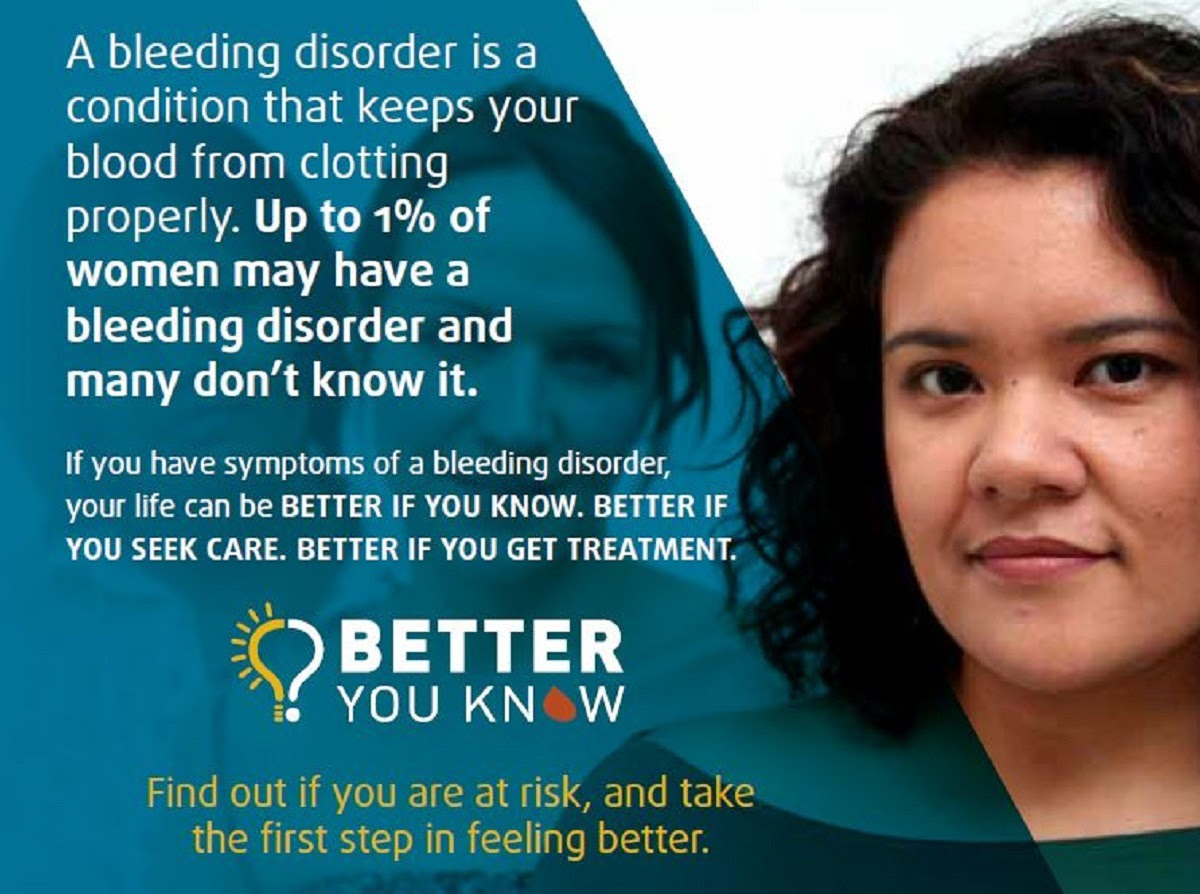
Bleeding Disorders Awareness Month
Women and Bleeding Disorders
March is Bleeding Disorders Awareness Month! Hemophilia and von Willebrand Disease (VWD) are examples of bleeding disorders. People with hemophilia and VWD can experience excessive and longer-than-usual bleeding, known as bleeding episodes, because their blood lacks the proteins needed for bleeding to stop (a process known as coagulation). Hemophilia affects primarily men, and VWD affects men and women equally.
VWD is the most common bleeding disorder affecting women. Women are more likely to experience symptoms of VWD because of the increased bleeding it causes during their menstrual periods, during pregnancy, and after childbirth. Women with heavy menstrual bleeding (HMB) or VWD are at increased risk for anemia, pain during menstruation, hospitalizations, blood transfusions, limitations in daily activities, time lost from work or school, and reduced quality of life.
During Bleeding Disorders Awareness Month, the Centers for Disease Control and Prevention (CDC) will send out several digital newsletters highlighting information, helpful tips, and various resources to help raise awareness about bleeding disorders.
Did You Know?

What is Better You Know?
Better You Know is a public health campaign developed by the National Hemophilia Foundation (NHF) in partnership with the CDC. The campaign aims to raise awareness about bleeding disorders among women who may experience symptoms of a bleeding disorder but have not yet been diagnosed. At the Better You Know campaign website, women can take a free, web-based risk assessment to learn whether they may be at risk for a bleeding disorder. If they are at risk, tools and resources are available to help them take steps towards seeking care, receiving testing, and getting an accurate diagnosis from their healthcare provider.For women and girls, bleeding disorders pose unique health problems because the disorders can affect their reproductive health and overall quality of life. The Better You Know campaign encourages women and girls to know their risks for a bleeding disorder and its signs and symptoms. Being aware of a bleeding disorder can help women and girls seek medical attention and get tested at the earliest signs.





















.png)












No hay comentarios:
Publicar un comentario